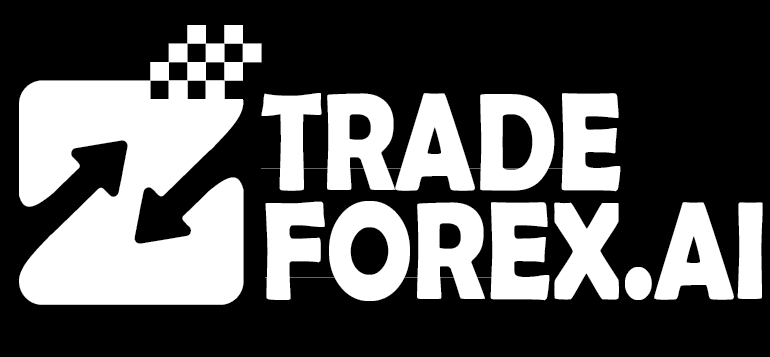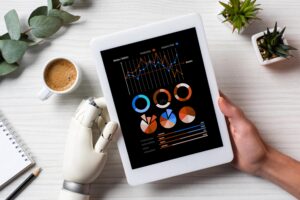The ethical use of AI in forex trading is a growing concern as algorithm-driven platforms take over human decision-making. While AI improves speed and data processing, it also brings challenges related to transparency, fairness, and accountability. As traders increasingly adopt these technologies, it becomes essential to examine whether we’re using AI in ways that are ethical and sustainable.
Why AI Is Dominating the Forex Market
AI-powered forex trading systems are valued for their ability to analyze massive datasets and execute trades in real time. These systems recognize patterns, respond to market shifts, and avoid emotional trading errors. Their efficiency makes them a favorite among both retail and institutional traders.
However, an over-reliance on such automation poses ethical concerns. If traders no longer understand or question AI decisions, they risk ceding control to black-box models whose logic is inaccessible.
Algorithmic Trading: Benefits and Ethical Dangers
Algorithmic trading isn’t new, but the integration of AI makes it faster and more autonomous. Bots can handle everything from setting trade entry points to executing risk management strategies. But with these capabilities come ethical risks:
- Technical failures that lead to flash crashes
- Overfitting AI to outdated or biased data
- Lack of accountability in AI-driven decisions
The 2010 Flash Crash is a cautionary example. While not caused directly by AI, it showed how automated trading could spiral out of control. Today’s AI models, being more complex, pose greater risks if left unchecked.
The Need for Transparency in Automated Trading
Transparency is vital for ethical AI adoption in forex. Many AI models operate as black boxes, meaning users don’t know how they arrive at decisions. This lack of clarity undermines trust and makes it harder to assess risks.
Ways to ensure transparency include:
- Providing clear documentation for AI systems
- Allowing traders to trace trade rationales
- Offering alerts for risky or unusual trades
Without visibility, traders can’t verify if AI tools are making sound decisions. Ethical use demands openness at every stage.
Responsibility and Human Oversight
When AI is involved in trading, determining who is responsible for losses becomes complex. Is it the trader, the developer, or the platform?
Human oversight is crucial. Traders should:
- Manually approve high-stakes trades
- Audit AI behavior regularly
- Set limits on automation during volatile periods
Maintaining human involvement helps prevent poor AI decisions from escalating into serious losses.
Ethical Data Practices and Bias Prevention
AI learns from data—but data can be biased. If a model is trained on incomplete or skewed information, it may reinforce unfair patterns. In forex, this could mean favoring certain currencies or reacting disproportionately to particular news sources.
To reduce this risk:
- Train AI on diverse, high-quality data
- Regularly test for bias in output
- Update models as markets evolve
Ethical AI starts with ethical data. Bias must be monitored and corrected continually.
Strengths and Shortcomings of AI in Decision-Making
AI brings tremendous speed and accuracy to trading. It reacts instantly to market news, economic data, and global events. But faster isn’t always better.
Some limitations include:
- Failure to grasp market sentiment or political context
- Inflexibility in unprecedented scenarios
- Dependence on historical trends that may no longer apply
AI should complement human intelligence—not replace it. In volatile or unexpected situations, human judgment is still irreplaceable.
Staying Engaged While Using AI
It’s tempting to let AI handle everything. But traders must remain actively involved. Treating AI as a tool, not a substitute, ensures better long-term performance.
Best practices:
- Review AI-generated reports daily
- Use automation selectively
- Monitor changes in system behavior
An informed and engaged trader is less likely to fall victim to AI errors.
The Regulatory Gap in AI Forex Trading
Forex markets operate globally, but regulations for AI use are lagging. Current laws focus on general algorithmic trading and rarely address AI-specific issues.
Key areas needing attention:
- Requiring explainability in AI models
- Setting standards for model testing and updates
- Protecting users from deceptive or opaque tools
Until regulations catch up, ethical responsibility falls on traders and developers to self-regulate.
Building Trust Through Ethical Deployment
Trust is essential for any trading system. Ethical AI deployment builds that trust by prioritizing transparency, accountability, and fairness.
Steps to build trust:
- Use open-source or well-documented tools
- Offer user education on AI functionality
- Encourage user feedback to improve systems
When traders understand and trust their tools, they are more likely to succeed responsibly.
The Future of Ethical AI in Forex
As AI becomes more advanced, ethical considerations will grow in importance. Traders and developers must work together to design systems that balance efficiency with responsibility.
Future developments may include:
- AI with built-in ethical filters
- Industry-wide AI guidelines
- Greater integration of human-AI collaboration models
The goal should be to make AI not only powerful but principled.
Conclusion: Shared Responsibility in AI Trading
Ethical use of AI in forex is not optional—it’s essential. It requires traders to stay informed, developers to build responsibly, and platforms to remain transparent. From data collection to real-time decisions, every step must reflect ethical standards.
Only then can AI become a sustainable force in the financial world—one that supports success without compromising integrity.
Practical Tips for Ethical AI Use in Forex Trading
To help you apply these insights in real trading situations, here are practical tips:
- Use transparent AI systems: Choose tools that explain how they make decisions.
- Don’t depend solely on automation: Review and approve trades personally when needed.
- Learn how AI works: Understand the basics of algorithms and data science.
- Update your tools: Use the latest AI models trained on current and diverse data.
- Avoid unethical tactics: Don’t use AI to exploit market inefficiencies or deceive other traders.
- Monitor results: Regularly assess AI performance and compare it with your goals.
Ethical AI use is about creating a partnership between human insight and machine intelligence—one that strengthens both your trading results and your market reputation.

I’m Chaitali Sethi, a financial writer and market strategist focused on Forex trading, market behaviour, and trader psychology. I simplify complex market movements into clear, practical insights that help traders make better decisions and build a stronger trading mindset.

